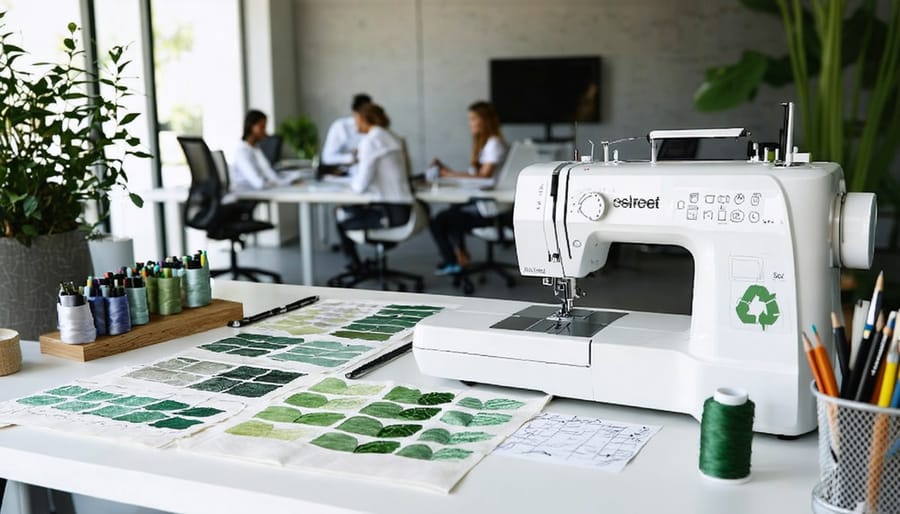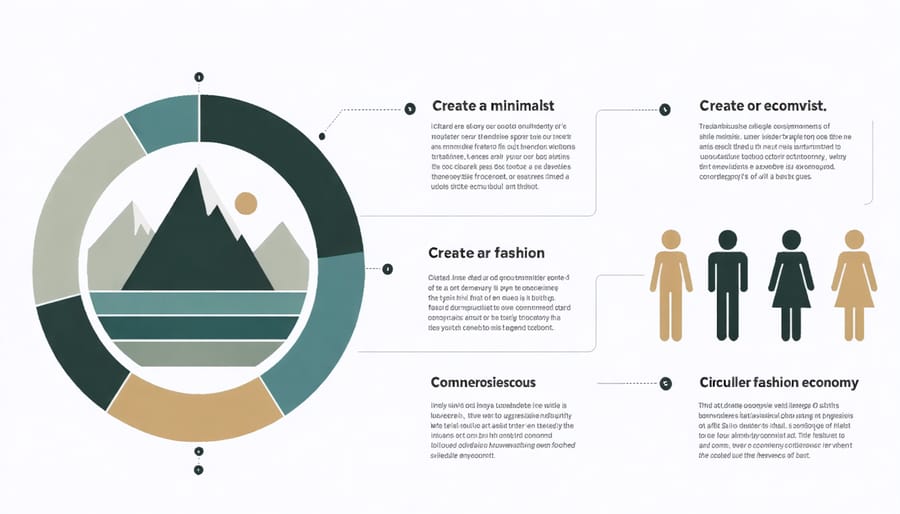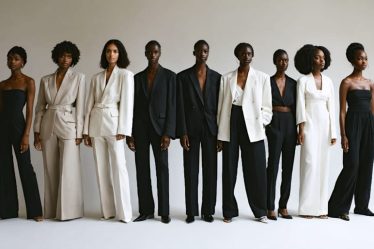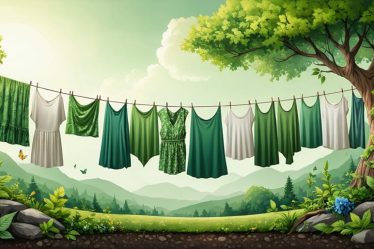
Prepare for a purpose-driven career in sustainable fashion with these in-demand roles:
Sustainability Specialist: Drive eco-friendly initiatives, from sourcing materials to implementing circular economy principles. Collaborate with teams to minimize waste and optimize processes.
Ethical Supply Chain Manager: Ensure fair labor practices and transparency throughout the supply chain. Build relationships with suppliers prioritizing worker well-being and environmental stewardship.
Sustainable Fashion Designer: Create timeless, versatile designs using low-impact fabrics and fashion hacks to extend garment life. Innovate with upcycling, zero-waste patterns, and modular construction.
Circular Economy Consultant: Help brands transition to closed-loop systems, developing takeback programs and recycling infrastructure. Educate stakeholders on the benefits of circularity.
Sustainable Materials Researcher: Develop and test new eco-friendly textiles, from bio-based fibers to recycled synthetics. Collaborate with mills and suppliers to scale sustainable innovations.
Impact the fashion industry’s future while aligning your career with your values. Embrace the challenge and opportunity to create positive change through these dynamic, rewarding roles in sustainable fashion.

Sustainable Fashion Designer
Upcycling and Zero-Waste Design
Sustainable fashion designers are embracing innovative techniques like upcycling and zero-waste design to create stunning garments while minimizing their environmental impact. Upcycling involves transforming discarded materials or unwanted clothing into new, fashionable pieces, giving them a second life and reducing textile waste. Zero-waste design focuses on creating patterns that utilize every scrap of fabric, eliminating cutting room floor waste. These creative approaches challenge designers to think outside the box and craft unique, eco-friendly collections that showcase their ingenuity. By incorporating upcycling and zero-waste principles, sustainable fashion designers are not only reducing the industry’s carbon footprint but also inspiring a new generation of conscious consumers who value style and sustainability equally. As more brands adopt these practices, the demand for skilled designers who can seamlessly integrate upcycling and zero-waste techniques into their work will continue to grow, offering exciting opportunities for those passionate about fashion and the environment.
Eco-Friendly Materials and Dyes
Sustainable fashion designers are leading the charge in using eco-friendly materials and dyes that minimize environmental impact. Organic cotton, hemp, and bamboo are popular choices for their low water and pesticide requirements. Recycled materials like plastic bottles and discarded fabrics are creatively repurposed into stylish garments, reducing waste. Low-impact dyes derived from natural sources such as plants and minerals are replacing harsh synthetic chemicals. These thoughtful material selections not only contribute to a healthier planet but also provide unique textures and aesthetics that set sustainable designs apart. By embracing innovative, earth-friendly options, these visionary designers prove that fashion can be both beautiful and responsible.

Sustainability Manager
Sustainability managers play a vital role in guiding fashion companies toward more environmentally and socially responsible practices. These professionals are responsible for developing and implementing comprehensive sustainability strategies that align with the company’s values and goals. From conducting environmental impact assessments to setting targets for reducing waste and carbon emissions, sustainability managers work tirelessly to minimize the fashion industry’s ecological footprint.
To excel in this role, sustainability managers must possess a deep understanding of sustainable practices, industry trends, and relevant regulations. They collaborate with various departments, including design, sourcing, and manufacturing, to ensure that sustainability is integrated into every aspect of the business. This involves researching and sourcing eco-friendly materials, implementing energy-efficient technologies, and promoting circular economy principles such as recycling and upcycling.
Effective communication and leadership skills are essential for sustainability managers, as they often need to educate and engage stakeholders at all levels, from employees to consumers. They also play a key role in transparency and reporting, regularly monitoring and communicating the company’s progress toward sustainability goals.
Qualifications for sustainability managers typically include a degree in environmental science, sustainable business, or a related field, along with relevant work experience. A passion for sustainability and a drive to create positive change in the fashion industry are also crucial traits for success in this demanding yet rewarding career path.
Ethical Supply Chain Coordinator
As an ethical supply chain coordinator, you play a vital role in ensuring that fashion brands operate responsibly and sustainably throughout their supply chains. Your primary focus is to promote fair labor practices and minimize the environmental impact of fashion production. This involves working closely with suppliers, manufacturers, and other stakeholders to establish and maintain ethical standards.
Transparency and traceability are key aspects of your job. You must ensure that the brand has a clear understanding of where their materials come from, how they are produced, and the working conditions of those involved in the process. This often requires conducting audits, inspections, and assessments to verify compliance with the brand’s ethical guidelines.
By fostering open communication and collaboration with suppliers, you can help identify areas for improvement and implement solutions that benefit both workers and the environment. This may involve providing training and support to suppliers, helping them adopt more sustainable practices, and ensuring they adhere to fair wage and safe working condition standards.
Your work also involves staying up-to-date with the latest developments in sustainable fashion, such as innovative materials, production techniques, and industry best practices. By continuously seeking ways to improve the brand’s supply chain, you contribute to a more responsible and conscientious fashion industry.
As an ethical supply chain coordinator, you have the opportunity to make a real difference in the lives of workers and communities around the world while helping fashion brands become more sustainable and socially responsible. It’s a challenging but rewarding career path for those passionate about creating positive change in the industry.
Circular Economy Specialist
In the world of sustainable fashion, circular economy specialists are pioneering a groundbreaking approach to clothing production and disposal. These experts are developing closed-loop systems that maximize resource efficiency and minimize waste. By reimagining the lifecycle of garments, they aim to create a future where clothes are designed with longevity, repairability, and recyclability in mind.
Circular economy specialists work closely with fashion brands to implement innovative strategies that keep materials in use for as long as possible. This involves exploring sustainable sourcing options, such as recycled fibers and biodegradable materials, and designing products that can be easily disassembled and repurposed at the end of their life. They also collaborate with organizations to establish take-back programs and upcycling initiatives, ensuring that used clothing finds new life instead of ending up in landfills.
By promoting a shift towards circularity, these professionals play a crucial role in reducing the environmental impact of the fashion industry. They promote eco-friendly fashion practices that not only benefit the planet but also create new opportunities for businesses to thrive in a more sustainable economy. As consumers become increasingly aware of the importance of responsible consumption, the demand for circular fashion solutions is on the rise, making this an exciting and rewarding career path for those passionate about driving positive change in the industry.

Sustainable Fashion Influencer
In the world of sustainable fashion, influencers play a crucial role in promoting eco-friendly choices and raising awareness about the industry’s environmental impact. These trendsetters use their social media platforms to showcase stylish, sustainable outfits and share valuable insights with their followers. By partnering with ethical brands and highlighting the importance of conscious consumerism, they inspire their audience to make more mindful fashion decisions.
Sustainable fashion influencers often share tips on how to build a capsule wardrobe, shop secondhand, and care for clothes to extend their lifespan. They also shed light on the environmental and social issues within the fashion industry, such as water pollution, textile waste, and unfair labor practices. Through engaging content, including outfit posts, tutorials, and behind-the-scenes glimpses into sustainable brands, these influencers make eco-friendly fashion accessible and appealing to a wide audience.
As the sustainable fashion movement grows, influencers have the power to shape trends and shift consumer behavior towards more responsible choices. Their authentic storytelling and relatable content create a sense of community among their followers, fostering discussions and encouraging positive change. By championing sustainable fashion, these influencers are not only building successful careers but also contributing to a more ethical and environmentally conscious industry.
Conclusion
In conclusion, sustainable fashion jobs offer an exciting opportunity to make a meaningful impact while pursuing a rewarding career. From designers creating eco-friendly collections to supply chain managers ensuring ethical production, there are diverse roles available for those passionate about driving positive change in the industry. By leveraging innovative materials, implementing circular economy principles, and advocating for fair labor practices, professionals in sustainable fashion can help shape a more responsible and conscious future for the industry.
As consumers become increasingly aware of the environmental and social impact of their clothing choices, the demand for sustainable fashion will only continue to grow. This presents a unique opportunity for individuals to align their career with their values and contribute to a better future for both people and the planet. Whether you have a background in design, business, or advocacy, there is a place for you in the sustainable fashion movement. By pursuing a career in this field, you can be part of the solution, helping to create a more sustainable, ethical, and inclusive fashion industry for generations to come.



